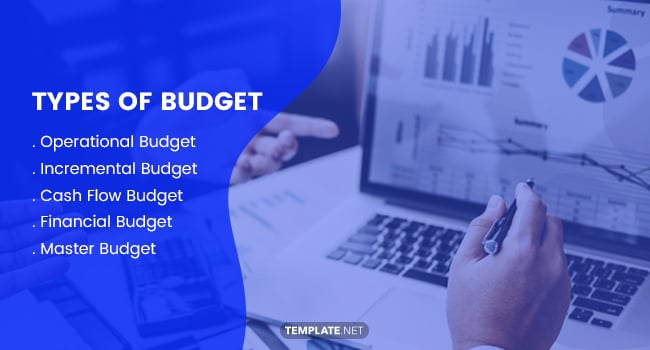How to Prepare a Budget for Business
No business can afford to neglect their finances, which is why planning is an absolute necessity. To continue pumping precious lifeblood into your company, expert financial management must be present to help mitigate risks and errors. Doing so involves developing critical forecasts and strategies for the maintenance of healthy coffers. Congratulations, you’ve just taken your first step into the wider world of budget planning. This is an exciting endeavor that’s designed to put your company’s executives and accounting departments to the absolute test. Without further ado, let’s move on to the finer points of budgeting.

How to Prepare a Budget for Business
Starting or Continuing
Before anything else, it’s vital to state that recognizing your intentions for the budget is essential. Companies have different needs for their capital, and the game plan differs between small businesses and bigger ones. The most important difference to focus on now is focused on whether you are starting out or continuing a business endeavor. Sources of financing won’t be the same for those two. Some will acquire loans, others already have capital secured, and others will uncover their coffers.
Starting is the tougher scenario since the strict budget allocation is needed. Playing it safe and doing what you can to make it work is often recommended. In this circumstance, being ill-prepared translates to unsecured falls. On the other hand, if you’re reading this in hopes of getting better at budgeting for an ongoing business endeavor, then you can breathe a bit easier. What’s needed here is greater expertise, better administration, and overall management to turn your projections into reality. It’s likely that you’ve done enough to keep yourself afloat so the important thing here is to find ways to improve your existing budget preparation skills.
Budgeting Perspective: Predicting vs. Forecasting
Our next subtopic will tackle something that, at first, seems like wordplay. Do you know the difference between predicting and forecasting? Being clear on the definitions is essential since they can shape your attitude towards budgeting. Both refer to the future but anybody can make predictions. There’s nothing difficult about tying up loose ends and knots without any careful study whatsoever. If you put every prediction in a crucible, then just know that there are more chances in likelihood than certainty.
Forecasting, on the other hand, is different as it not an ordinary person’s wishful thinking. Similar to weather forecasters, they are not offering a tomorrow out of pure speculation. They echo the results of meteorologists who are in a constant watch of the weather. Imagine the statistics they need to put up with to tell you to wear boots for tomorrow’s rain. A rigorous method through rigid analytics is essential in having a sure grasp of the future. Do frequently ask your company’s staff about their budgeting attitude. Would the business settle for a crystal ball or a team of scientists?
Stock Up to Stack Up a Budget Preparation

Sometimes it becomes easy to think that projecting a budget doesn’t matter since changes that can affect the plans happen too often. However, no matter how volatile things get, it is still vital to peg down a map for the expenses. There is nothing better than having a detailed guide and here are the following reasons why budget preparation is critical in every business.
Financial Check
Consider that you are in the middle of your business term and you want to plan for the following year. Proper budget projections do not materialize out of thin air; you might as well rely on your current profit and loss statement to have a firm basis. In business, predicting is sub-par compared to forecasting. Forecasting demands evidence to have accurate and substantial figures for the future. You need to do an actual financial check, which is crucial.
A Path to Follow
Your budget is an integral and indispensable part of your business plan, as any action to commit has a particular cost. Moreover, the budget is a perfect guide. Without it, what path will your company follow? Now imagine a blank sheet for your future use. With all the desired activities to execute, do ask yourself if you have the funding to fill it up.
Letting the Cash Flow
Setting your cash to motion will open the doors for returns. And what good is capital if you do not spend it? As to how much will be worth the investments and risks, this is where budget planning will come in handy. Once you are in business, you need to give your funds a go after forecasting reasonable figures.
Financial Management
What management would be complete without getting a grasp of your finances? Not only does preparing the budget lead you to check the financial status, but it will also serve as a step to properly handle whatever assets you garnered. Since you are dealing with projections, sales, and expenses are under your watch. Thus, with accurate and relevant data to support your budgeting, you have enough grounds to justify specific allocations.
A Pool of Funds: What for?
Estimates are essential in any company because you need to have the necessary pool of funds to do business. In any case, you need to impress your boss or the financial officers that your proposals matter and the expected expenditures will be worthwhile. As to the budget uses, they differ according to their respective intentions. And allocating them to designated business areas will keep the business up and running. Below is a list of the different types of budgets on or before the start of another financial term.
Types of Budget

Budgets differ accordingly to what they aim to estimate. There are many aspects of a business that deserves careful attention and allocation, especially when the promise of benefits loom greater than losses and risks. Moreover, here are the different types of budget that every industry needs to know.
Operational Budget
Every business has operations as it sets the motion and the pace for productivity. Usually, the finances spent on operations cover the bulk of the fund’s cache. Revenue expenses even shoulder the costs. And every business still wants to do cost estimating the next year-round. And doing so, operations should have the fuel for its needed steam.
Incremental Budget
Budgeting sometimes anchors itself on past performance and relies on the same estimates of the before. An incremental budget is not a pure prediction of pure possibilities. Thus, the target is to achieve the same record even though a business is in a new fiscal calendar.
Cash Flow Budget
Receipts and expense documents are the papers to look at when looking at cash flow. However, projecting the cash flow veers into the estimates of the said documents. Doing the forecasts can also be within specific manageable periods either by the day, week, or month.
Financial Budget
Long term goals and short yet intermediate targets are a constant focus in the financial budget. While making the estimates, budget analysis is indispensable together with balance sheets along with the expense worksheets. There is nothing like a clear picture of the finances to have a direction in managing prospects.
Master Budget
Having a solid overview of the entire company’s budget is the concern of any master budget. A complete and comprehensive account of all financial matters is the objective to accomplish.
How to Prepare a Budget for Business

Preparing a budget for any business takes time and effort. It is not about merely assigning figures to random ideas; neither is it for record’s sake because the budget is necessary to keep the business’s lifeblood pumping. Here are the following steps in making the necessary preparations.
Gather Business Operation Details
Grasping the business’s operational details through a careful study of the organizational flow chart is critical. You need your estimations to have a strong basis on its destination. Plus, a considerable bulk of the company’s resources will end up in pumping the steam for a continuous, improved, and qualified operations.
Review Previous Records
Cost estimating does not happen inside a vacuum. Not only do you need to know the business details, but you also need to have a firm grasp of previous records. Your budget must come from somewhere. So better check every statement document or worksheet to have a working figure. And later on, you can devise ways to allocate the funds accordingly.
Do a Budget Analysis
Will the estimates bear significance or sustain the yearly budget projections? Every analysis is crucial to both reaffirm the budget’s rationale. Thus, hiring a competent analytics team is critical in getting this task done. Plus, backing up projections through scientific scrutiny and mathematical accuracy will work wonders for every business.
Foresee Circumstances
Although the future is not a sure garden of flowers, it is not a waste to try clearing out the fog of uncertainties by turning it into a window of possibilities. However, it is also ambitious to pinpoint the long and distant future. Working with manageable predictions that can affect the budget is still essential.
Plan Actions
Funds must go somewhere, and other than the operations, strategic actions that can help the business expand is also worth every dime. Thus, start plotting out what to do according to the estimated figures, or you can think ahead of the strategies and work out an available and workable budget for them.
Estimate Costs and Gains
This step is at the heart of every budget process. Arriving at accurate and feasible figures is not a matter of looking at a crystal ball. Extensive research, backtracking, and studies are crucial. Moreover, business projections are pointless if you do not attempt to justify it with numbers.
Check for Feasibility
Projecting is not the same as imagining. Although imagination is healthy, firm ground is better than tiptoeing on clouds. Thus, review the entire process and see whether the budget is manageable. It will be laughable if the estimates are far beyond what the coffers can offer. Why pursue with estimates that are not even available in the first place?
Working to figure out a company’s budget is a critical task in every financial and executive department. Since every business is aiming to gain profit, every establishment needs to have the resources to make gains happen. Again, projections are not wishful thinking as they need to have a basis. Thus, preparing the business’s budget includes meticulous action planning, substantial estimating, and thorough research.






